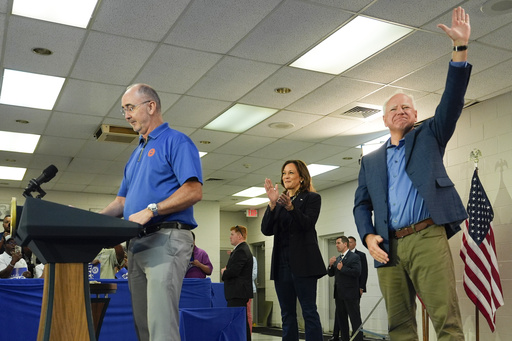In Sterling Heights, Michigan, a dispute between the United Auto Workers union and Stellantis is causing concern among employees like Ruth Breeden, who assembles Ram trucks. The conflict revolves around the delayed reopening of an assembly plant in Belvidere, Illinois, pledged by Stellantis in a contract with the union last year. Due to what the company describes as unfavorable market conditions, the plant’s reopening, along with the establishment of a new battery plant and parts warehouse as outlined in the contract, has been postponed, putting 2,700 jobs at stake. Union members worry that this delay could signal future broken commitments by Stellantis in other states, potentially jeopardizing additional jobs.
Amidst the tension, union leaders have raised the possibility of a strike, a move that could have implications beyond Stellantis. Industry experts note that competitors Ford and General Motors are monitoring the situation closely as they assess their own production strategies, including the potential relocation of manufacturing sites outside the U.S. in response to labor disputes.
The Belvidere plant emerged as a point of contention during the UAW’s recent leadership election, following a scandal involving the union’s previous administration. Despite a contract agreement stipulating the reopening of the Belvidere facility by 2027 and the creation of additional plants and jobs as part of a significant U.S. investment plan, uncertainty looms as Stellantis has yet to provide concrete timelines for these commitments.
While Stellantis reaffirms its commitment to Belvidere under the contractual agreement, concerns persist among union members regarding the company’s intentions, especially amidst reports of restructuring efforts to cut costs and enhance competitiveness. The delay in reopening the Belvidere plant and establishing new facilities has reignited fears of potential job losses and operational shifts, prompting discussions about the need to hold Stellantis accountable for its promises.
In response to criticisms and escalating tensions, Stellantis announced plans to invest in revamping its Michigan factories for electric vehicle production. However, skepticism remains among workers like Ruth Breeden, who worry about the company’s long-term investment in U.S. operations and the potential ramifications of cost-cutting measures on their livelihoods. The unresolved Belvidere issue underscores broader concerns within the auto industry about maintaining domestic production and honoring labor agreements amid evolving market dynamics and global competition.
